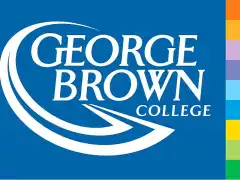Certificate - Web Development (Front-End Design)
- 1 year
- Duration
- 23,225 CAD
- Price
- Rolling admission
- Start
- Rolling admission
- Deadline
- Certificate
- Degree
- Campus
- Format
- Toronto / Canada
- Location
Program description
This one-year (three-semester) graduate certificate program will teach you how to conceptualize and design user interfaces, websites, applications, and systems for yourself and others. In industries as diverse as healthcare and financial technology, retail and technology, and more, front-end developers create high-impact websites and apps with a focus on user experience.
The program creates a new benchmark for app creation by centering on these five tenets:
- accessible user interface design (“UI”)
- intuitive user experience design (“UX”)
- industry workflow and problem solving skills
- full-stack application architecture
- front-end development
Program structure
Semester 1
- Applied Interface Design
- Applied Interface Development
- User Interface Design and Technique
- Prototyping and Experience Design
- Libraries, Tools and Workflow
- Studio Practice 1
Semester 2
- Front-End Application Architecture
- Data Design and Development
- Industry Employment and Portfolio
- Future Interface Design
- Front-End Frameworks
- Studio Practice 2
Semester 3
- Front-End Design Field Placement
Price
Base tuition fee (for three semesters - 1 year):
- 23,225 CAD for international students
Additional fees:
- Application Fee - 110 CAD
- Incidental Fees (student ID, student association membership, etc) - 2,000 CAD
- Mandatory Health Insurance - 790 CAD for 1 year coverage
Requirements for applicants
Admission Requirements
- Ontario College Diploma, advanced diploma, degree or equivalent in computer science/studies, web programming, interaction design or related, or demonstrated work experience in design or computer development.
- Questionnaire: Qualified applicants will be invited to complete a questionnaire electronically. The questionnaire will focus on queries related to past development experiences and software applications the applicant is familiar with and comfortable working in. The questionnaire is designed to describe the applicant's future career objectives and intentions in the program. It provides information to assist the Academic Review Committee in assessing the applicant's potential for success in the program.
- Interview: Qualified applicants may also be invited for an interview.
English language proficiency
- George Brown English for Academic Purposes (EAP) Program - Level 8;
- IELTS (Academic) - 6.0, minimum 5.5 in each skill band;
- TOEFL - 80 (online) minimum 20 in each skill band;
- Duolingo English Test - 105;
- MELAB - 80;
- PTE (Academic) - 54, overall minimum, 50 in each skill band;
- CAEL - 60 (overall);
- Cambridge English Exams (B2 First, C1 Advanced or C2 Proficiency) - 169 or more (with no individual skill below 162).
About the university

George Brown College opened its doors in 1968, welcoming just over 2,000 students.
Since then, full-time student population has grown to more than 30,000. People come to George Brown from across the Greater Toronto Area, the country and the world to develop the skills and gain the real-world experience needed to succeed in the workplace. Since 2004, under current President Anne Sado’s leadership, George Brown has more than doubled in size, broadened international partnerships and increased commitment to strengthening the cultural, economic and social fabric of Toronto.
About George Brown College
The college located in Toronto, Canada. It has three campuses - Casa Loma, St.James, Waterfront, other locations where students attend classes and Student Residence.
George Brown College educates a blend of theory and hands-on experience, prioritizes real-world learning and provides students with opportunities to work alongside industry professionals in applied research and fields education opportunities. Its industry partnerships mean students get the latest trends and tech they can expect in the field. The college offers 170 programs in 7 centers. They include Art, Design and Infromation technology, Business, Community Services and early childhood, Construction and Engineering technologies, Health Sciences, Hospitality and Culinary arts, Preparatory and liberal studies.
Experiental and work-integrated learning oportunities are availabale to students to take part in.
6 reasons to study at George Brown
- Study in Downtown Toronto
- Hands-on, real world experience
- Infromed by industry
- Expert instructors
- Applied research
- Promoting enterpreneurship





